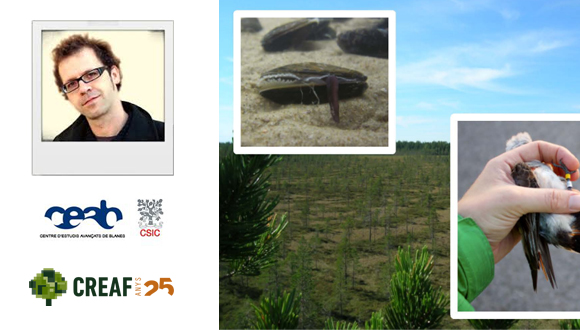Spatial ecology course for PhD
In March, there will be a PhD course in spatial ecology in the Netherlands, dealing with processes that determine the spatial organization of ecosystems and the movement of animals and plants. Frederic Bartumeus, associated researcher at CREAF and director of the ICREA-Movement Ecology laboratory (CEAB-CSIC), and other internationally renowned spatial ecologists will give lectures in the course.

SCOPE OF THE COURSE
Including space in ecological studies has become increasingly important in the past decades. Recent studies reveal that ecological processes can generate striking spatial complexity and that the movement and distribution of organisms interact with spatial environmental patterns. Studying these processes and interactions involves concepts and techniques that most young ecologists are unfamiliar with.
The aim of this course is to stimulate discussion and improve our understanding of how spatial interactions shape communities, ecosystems, and the movement patterns of organisms.
Concepts such as spatial self-organization, scale-free movement and biophysical interactions at multiple scales will be dealt with, as well as current techniques to quantify plant and animal movement, analyze animal movement strategies and study the implications of spatial self-organization in an ecosystem, using a relatively simple model. Students will learn the intimate tricks and techniques that got their work going.
If you are a PhD student that would like participate check the following flyer and poster, or else go to www.pe-rc.nl/spatial_ecology.htm






